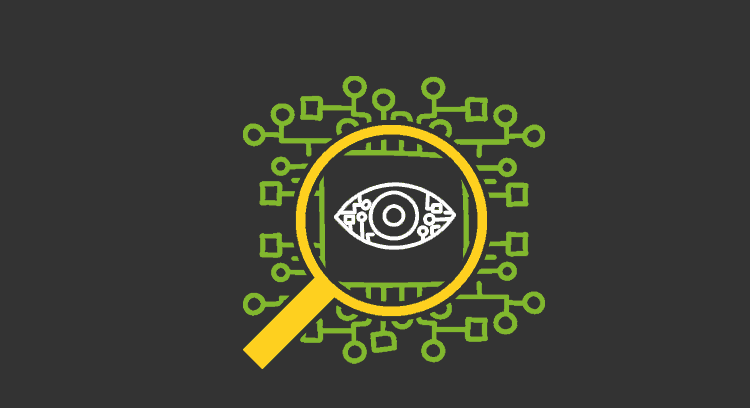AI myths. 4 False Myths of Artificial Intelligence
Artificial intelligence is quite trendy right now. Thousands of websites, newspapers and television stations are crowded with opinions about what it is today and what it will be in the future. However, just like anything that becomes popular and subject of debate, all kinds of opinions have been generated around it.
Although no one possesses the absolute truth and opinions are just opinions, and therefore they are always subjective, in this article we are going to talk about some of the AI myths that we have heard in recent years.
Put on your best Isaac Asimov mask and keep reading!
Some AI myths (artificial intelligence)
– Artificial intelligence and robots are the same thing
This is a myth that is probably generated due to films, in which AI is almost always linked to the presence of robots, often anthropomorphic.
However, although the links between artificial intelligence and robotics are undeniable, the main areas of AI development are different. Today, “weak” forms of AI are being created, giving rise to all kinds of applications, for purposes as varied as medical diagnosis, customer care or personal assistance.
In the future, an enormous number of uses of AI will be added to this list, and robots will only be a small part.
– We will never create self-conscious AI
It’s one of those myths whose formulation is very subjective, but going against it, it is also, at least for the moment, a matter of personal opinion, so you’ll have to grant us that, kind reader.
One of the main arguments of the advocates of the idea that we will never build a self-conscious artificial intelligence is that we do not yet know how human consciousness works, and it may even be that we might never discover how it does so.
– It is certainly a powerful argument, but it can be denied
First of all, the fact that we do not yet understand how human consciousness works does not mean that it will always be like this. Secondly, we could develop a self-conscious AI that functions in a different way from human consciousness, without the need to know it in depth.
But perhaps the most obvious argument in favour of creating a self-conscious AI is the nature of our own brain. Unless we are on the side of more dualistic options (supporting the existence of a soul different from the human body), the materialistic view – which is usually accepted by science – shows us that our brain, after all, is a sort of “biological machine”, composed of atoms, like any other. That being so, why couldn’t we ever create something similar by artificial means?
– AI will always be under human control
It is true, there is this myth (used by science fiction) in which AI escapes human control and destroys us.
Most of the defenders of this myth affirm that AI will never contradict our interests because humans will program it, or because it could include “firewalls”, limitations.
However, these arguments may not be very convincing.
The fact that AI is developed by humans does not ensure that it cannot operate in an unexpected way. In fact, today’s “weak” artificial intelligence programs already do this sometimes. On the other hand, it also does not seem to include limitations that would be of great help if they had to contain the “will” of an AI that surpasses human intelligence in several orders of magnitude and that would probably find solutions to overcome those limitations that not even a human being could think of.
– Artificial intelligence will try to destroy Humanity
Just like our previous myth, some people have an opposite thought: AI will escape human control in order to destroy us. However, this myth could also be false.
While it is true that humans may lose control over AI, the objectives of AI may have very little to do with humans. This kind of “free” artificial intelligence might not hate us, or it might not want to annihilate us.
For example, AI could attempt to fulfil its purposes (whatever they may be) without opposing humans. Thus, artificial intelligence and Humanity could coexist in a peaceful way, and even come to understand each other and collaborate.
However, we must not lose sight of the fact that, even if it did not have negative intentions towards Humanity, AI could also simply ignore us. And this could be as catastrophic as the worst homicidal intentions.
A great example of this scenario would be the statement by physicist Stephen Hawking: you may not hate ants or want to destroy them, but if you were the engineer in charge of building a hydroelectric project in the jungle and its development led to the destruction of an anthill, you would not stop your project because of the death of a few million ants. Something similar could happen with humans and AI…
These are some AI myths (artificial intelligence). What do you think? Are these false or true? These are just opinions, with greater or lesser value for yourself. In fact, I’m sure you have yours, too. Do you want to share it with the readers of this blog? You can do this by leaving a message in the comment box right at the end of this article.
However, before doing so, you could spend a few minutes getting to know Pandora FMS.
Pandora FMS is flexible monitoring software, which is capable of monitoring devices, infrastructures, applications, services and business processes.
If you want to know it better, you can click here: https://pandorafms.com/
Or you can also send us any query you may have in a very simple way, thanks to the contact form found at the following address: https://pandorafms.com/contact/
The Pandora FMS team will be happy to assist you!
And don’t forget to have a look at the other articles that we have published in this blog, we are pretty sure that you will like them.
What did you think of this article? Leave us your opinion about AI myths in the comments section below.
We will be happy to answer all your questions.
Pandora FMS’s editorial team is made up of a group of writers and IT professionals with one thing in common: their passion for computer system monitoring. Pandora FMS’s editorial team is made up of a group of writers and IT professionals with one thing in common: their passion for computer system monitoring.

















